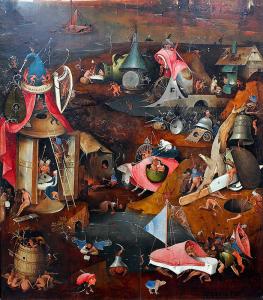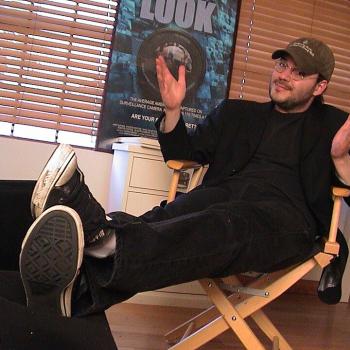
Source: Flickr user Frans Vandewalle
License
Massacre at Central High (1976) has that peculiar quality by which something that anticipates a phenomenon gets to its essence better than those things that make-up the phenomenon itself. We have this idea of 70s high school exploitation films and the slashers that followed them; we know that revenge so often undergirds these kinds of movies (whether the desire of a wronged serial killer or revenge on bad guys for a group of worthy kids). But when did social salience give way to thrills? Or are the two intimately related? In this case, the real core of the idea stands outside its normal content altogether.
Rene Daalder’s gritty cult classic begins standardly enough: David (Derrel Maury) starts school at Central High, where an old friend, Mark (Andrew Stevens) gets him in with a group of cool kids. They had to fight a lot at their old school, so this protection means, in theory, a much better experience, an escape. In practice, Mark’s new friends are horrendous bullies who dole out punishments in the name of order. The nerds and weaklings need to be kept down, they argue, lest anarchy break loose. Center has to hold and all that. David doesn’t buy this, and a conflict ensues.
Fair enough. If that’s all Massacre at Central High were, it would be a species of bloody after-school special. Bullies are bad, and sometimes a bigger bully must come along to destroy them all. That, however, is not how Daalder’s film plays out. Just as soon as the bullies have been removed, different sub-sections of nerds, geeks, and punks come to David seeking alliances: only (in each case) their combined power can really bring order to the school. Everything is crumbling, and the spontaneous order David assumed would soon enough obtain is nowhere to be found. What’s left to do but burn it all down?
In combatting monsters, David becomes one himself. In overthrowing the jocks, the nerds become too big for their breeches. That’s more complexity than most of us, even fans of the genre, expect from exploitation films and slashers, especially ones that predate Halloween (1978). The movie captures and crystallizes the fears of being an outcast so common in high schools; it shows openly and directly how terrible bullying really can be. At the same time, it doesn’t see a solution; it offers violence to counter violence begetting only more violence—a product of Flower Power it is not. An anticipation of late-mid 20th century malaise, even conservatism, it may be.
Daalder’s film pushes to the fore many of the essential problems we still face: even if we believe in a better world, how can we make it possible? In trying to do right, do we risk making things worse? Do we burn it all down? Or does that make us the same as the monsters we’ve slain? I’m not sure; no one seems to be, no more than those behind this film were in 1976.
I will say this though: Massacre at Central High has some of the best death scenes I’ve ever seen. I’m not sure, taking everything else into account, what to make of that.













